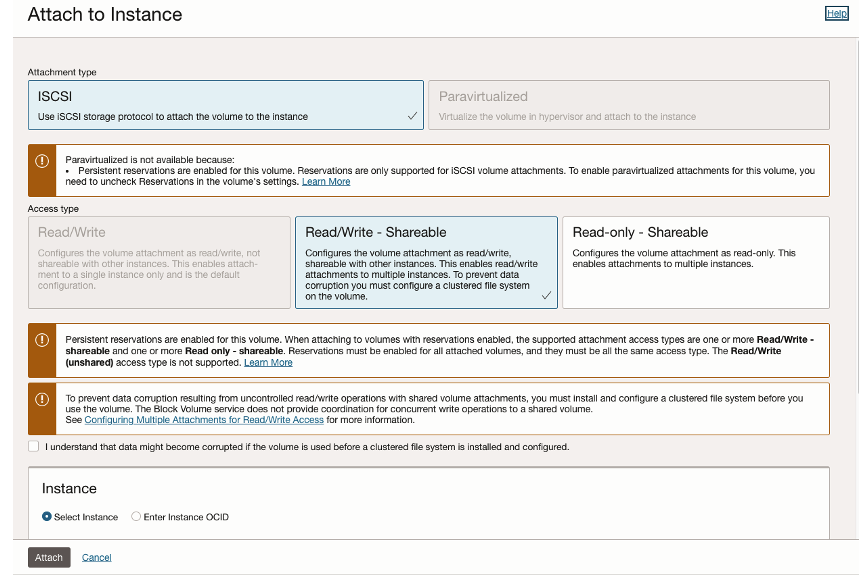We are excited to announce that the Oracle Cloud Infrastructure (OCI) Block Volume service now delivers support for SCSI-3 Persistent Reservations (PR) protocol with multi-attach capability. This new feature enables you as the block system administrator to deliver highly performant and scalable clustering solutions for your users. With this enhancement, OCI Block Volume service natively delivers a mechanism to control and manage concurrent writes to a single shared volume from multiple compute instances. With this feature, now you can:
- Enable Microsoft Windows Server Failover Cluster, and SQL Server Failover Cluster deployments on OCI
- Enable Linux based cluster solutions that use shared storage: Pacemaker
You can use Block Volume service’s SCSI-3 PR feature to coordinate access to shared block volumes for failover clustering providing high availability and minimizing downtime.
How SCSI-3 PR for Block Volume works
The new multi-attach capability supports widely available and popular clustering systems, including Oracle RAC (via OCI DBaaS) and Oracle Cluster File System that provide concurrency control for multiple writes. OCI Block Volume service SCSI-3 PR feature supports Read/Write Shareable multi-attached volumes. This gives clustered file systems the ability to handle concurrent writers and provide correctness with concurrent I/O operations. SCSI-3 PR defines a protocol to restrict access to SCSI devices. With this feature, you can now manage which instance has ownership for writes by using the PR commands without detaching the attached volumes.
Within Oracle Cloud Console, enable SCSI-3 Persistent Reservations for a volume (provides coordination for concurrent write operations to shared block volumes from multiple compute instances when access type is Read/Write Shareable) as shown.

For details on how to use this feature to build highly scalable and efficient clustering solutions for your users, please read the Deploy Microsoft SQL Server Windows Server Failover Cluster for HA and DR on Oracle Cloud Infrastructure tutorial by Chakravarthy Nelluri, Senior Principal Product Manager driving block storage customer solutions in OCI. This tutorial requires access to Oracle Cloud.
Try it for yourself
We want you to experience these new features available with OCI Block Volume service. Interested in trying Block Storage? Sign up for a free trial.
We value your feedback as we continue to make our service the best in the industry. Contact us to share your thoughts on how we can continue to improve or if you want more details about any topic. More feature updates are on the horizon for our cloud storage platform.
For more information, see the following resources:
